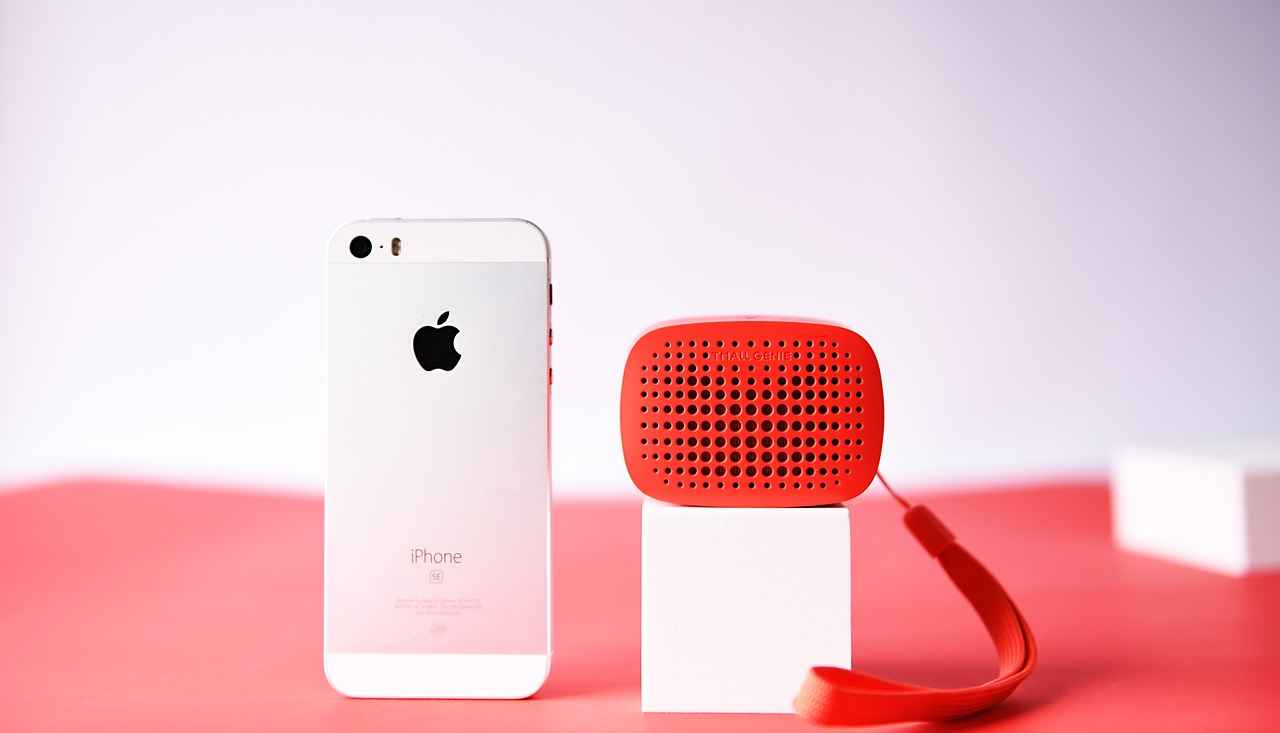This article delves into essential smart home devices that not only enhance convenience but also bolster security and improve energy efficiency. By integrating these cutting-edge technologies, you can transform your living space into a more intelligent and interconnected environment. Join us as we explore the latest innovations that can revolutionize your home experience.
- Smart Speakers: These devices act as the central hub for voice-activated control, enabling seamless management of all your smart home devices and effortless access to information.
- Smart Thermostats: By learning your heating and cooling preferences, smart thermostats optimize energy usage while maintaining comfort, ultimately reducing your utility bills.
- Smart Security Cameras: Enhance your home security with real-time surveillance and alerts, allowing you to monitor your property from anywhere.
- Smart Lighting Systems: Customize your home’s ambiance while enjoying energy efficiency and enhanced control through smartphone apps.
- Smart Door Locks: These keyless entry systems provide enhanced security features, enabling you to control access to your property remotely.
- Smart Plugs: Turn ordinary appliances into smart devices, allowing remote control and scheduling for improved energy efficiency.
- Smart Home Hubs: Centralize your smart home management with hubs that ensure seamless communication across all devices.
- Smart Home Security Systems: Comprehensive systems that integrate cameras, alarms, and monitoring services for complete home protection.
- Smart Appliances: From refrigerators to washing machines, these devices enhance everyday tasks through connectivity and automation.
- Smart TVs: Access streaming services and apps, transforming your entertainment experience with integrated smart features.
- Smart Irrigation Systems: Optimize water usage in your garden with systems that adapt to weather conditions and soil moisture levels.
Conclusion: The Future of Smart Living
As smart home technology continues to advance, integrating these essential devices can significantly enhance your comfort, security, and energy efficiency. Embrace the future of smart living and make your home a more connected and intelligent space.
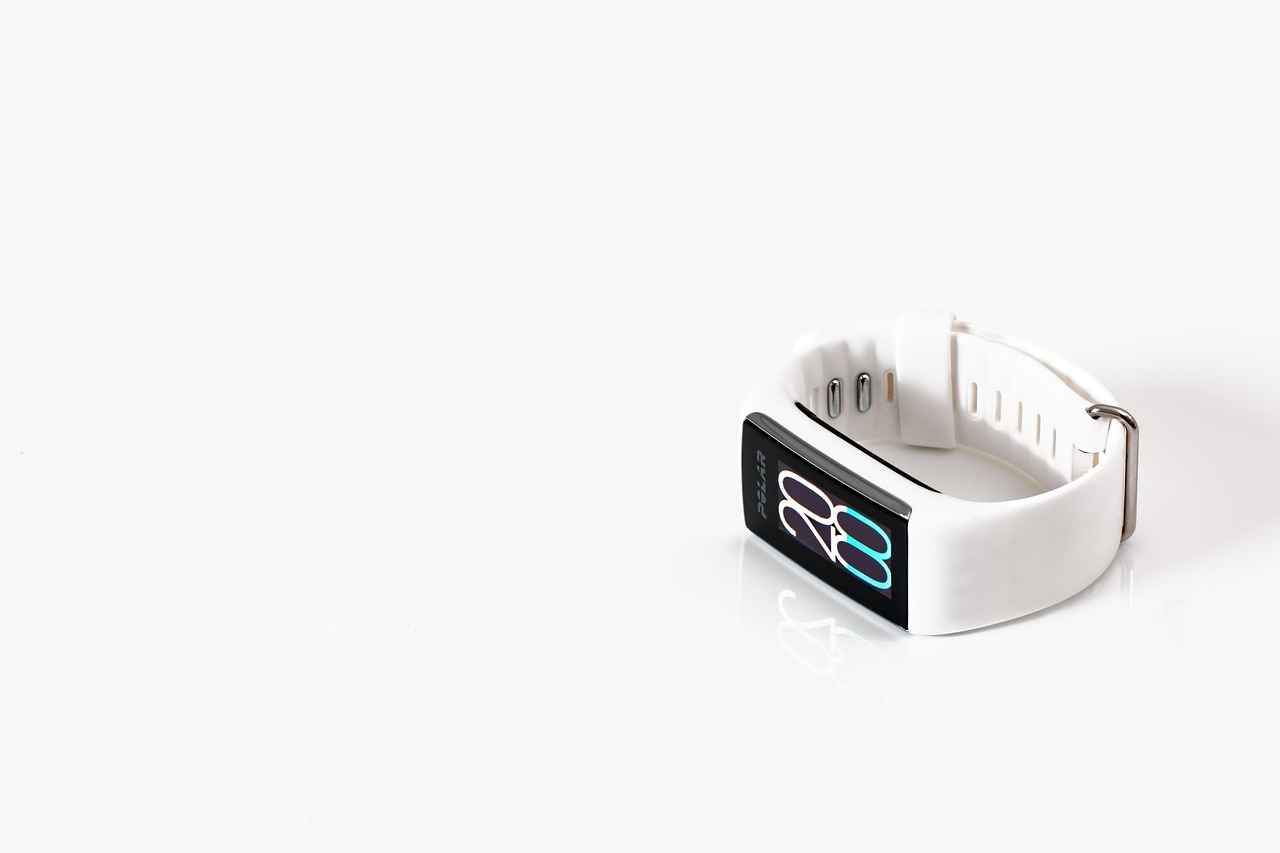
1. Smart Speakers
Smart speakers have revolutionized the way we interact with technology in our homes. These devices not only serve as a central hub for voice-activated control but also significantly enhance the overall smart home experience. By enabling users to manage their smart home devices seamlessly, smart speakers allow for effortless access to information and services, making daily tasks more convenient.
With built-in virtual assistants like Amazon Alexa, Google Assistant, and Apple Siri, smart speakers can perform a variety of functions. Users can ask questions, set reminders, play music, and control other smart devices with simple voice commands. This hands-free operation is particularly beneficial for multitasking, allowing individuals to focus on other activities while still managing their home environment.
| Feature | Description |
|---|---|
| Voice Control | Allows users to control devices and access information through voice commands. |
| Smart Home Integration | Connects with various smart home devices for centralized control. |
| Music Streaming | Plays music from popular streaming services like Spotify and Apple Music. |
| Information Access | Provides answers to questions, weather updates, and news briefings. |
Moreover, smart speakers can be integrated into routines, allowing users to automate tasks based on specific triggers. For example, a user can set a routine that turns on the lights and plays their favorite morning playlist with a single command. This level of customization not only enhances convenience but also promotes energy efficiency by ensuring that devices are only active when needed.
In conclusion, smart speakers represent a pivotal advancement in smart home technology. Their ability to streamline daily activities and enhance connectivity between devices makes them an indispensable tool for modern living. As technology continues to evolve, the capabilities of smart speakers are expected to expand, further enriching the smart home experience.

2. Smart Thermostats
Smart Thermostats have revolutionized the way we manage our home’s heating and cooling systems. By learning your unique preferences, these intelligent devices not only optimize energy usage but also ensure that your living environment remains comfortable throughout the year. The result? Reduced utility bills and a smaller carbon footprint.
- Energy Efficiency: Smart thermostats analyze your habits and adjust temperatures accordingly, leading to significant reductions in energy consumption. For instance, they can lower the temperature when you’re not home and warm it up before you return.
- Remote Control: With the ability to connect to your smartphone, you can manage your home’s climate from anywhere. Whether you’re at work or on vacation, adjusting your thermostat is just a tap away.
- Learning Capability: These devices adapt to your schedule over time. They remember when you typically wake up, leave for work, and go to bed, automatically adjusting settings to match your routine.
When selecting a smart thermostat, consider models like Nest and Ecobee. Both brands offer user-friendly interfaces, advanced features, and compatibility with various smart home systems. Nest, for example, includes a learning feature that makes automatic adjustments, while Ecobee comes with room sensors to ensure even temperature distribution.
Installing a smart thermostat is generally straightforward. Most models come with detailed instructions, and many users can complete the setup in under an hour. However, if you’re uncomfortable with electrical work, hiring a professional can ensure proper installation.
Incorporating a smart thermostat into your home is a wise investment. Not only does it enhance comfort and convenience, but it also contributes to energy savings and environmental sustainability. As technology advances, the benefits of these devices will only continue to grow, making them a must-have for any modern household.
2.1 Benefits of Smart Thermostats
Smart thermostats have revolutionized the way homeowners manage their indoor climate, providing a range of benefits that go beyond mere temperature control. These devices are not just a luxury; they are a smart investment that can lead to significant savings and enhanced comfort.
One of the most compelling advantages of smart thermostats is their energy efficiency. By learning your daily routines and preferences, these devices can automatically adjust the temperature when you’re home and lower it when you’re away. This intelligent behavior can lead to a reduction in energy consumption, which translates to lower utility bills. According to studies, homeowners can save up to 30% on heating and cooling costs by using smart thermostats.
Another key feature is remote control. Smart thermostats can be accessed via smartphone apps, allowing you to adjust your home’s temperature from anywhere. This is particularly beneficial for those who travel frequently or have unpredictable schedules. Imagine returning home to a perfectly warm or cool house, all thanks to a few taps on your phone.
Additionally, smart thermostats offer personalized climate control. With customizable settings and schedules, you can tailor your home’s environment to suit your lifestyle. Whether you prefer a cool temperature while sleeping or a warm atmosphere during family gatherings, smart thermostats can accommodate your needs.
Moreover, many models provide insights into your energy usage, helping you make informed decisions about your consumption habits. This data can empower you to further reduce your carbon footprint and contribute to a more sustainable lifestyle.
In conclusion, investing in a smart thermostat is not just about convenience; it is about enhancing your home’s energy efficiency, providing remote access, and allowing for personalized climate control. As technology continues to advance, these devices will become even more integral to smart home ecosystems, making them a wise choice for any homeowner.
2.1.1 Energy Efficiency
Energy Efficiency is a crucial aspect of modern living, especially in the context of rising energy costs and environmental concerns. Smart thermostats play a pivotal role in enhancing energy efficiency within homes by leveraging advanced technology to learn and adapt to your daily routines.
These devices are designed to monitor and analyze your heating and cooling preferences. By adjusting temperatures based on your habits, smart thermostats can significantly lower energy consumption and costs. For instance, when you leave for work, your smart thermostat can automatically adjust the temperature to save energy, and then readjust it just before you return home, ensuring comfort without unnecessary energy waste.
Moreover, smart thermostats are equipped with features such as geofencing, which uses your smartphone’s location to determine if you are home or away. This allows the thermostat to optimize settings accordingly, maximizing energy savings. Additionally, many models can provide detailed energy usage reports, helping homeowners identify trends and make informed decisions to further reduce consumption.
Incorporating a smart thermostat into your home not only contributes to lower utility bills but also supports a more sustainable lifestyle. By reducing energy usage, homeowners can lessen their carbon footprint, making a positive impact on the environment.
In conclusion, the integration of smart thermostats is a smart investment for anyone looking to enhance their home’s energy efficiency. With their ability to learn from your habits and adjust accordingly, these devices offer a seamless way to manage your home’s climate while promoting significant savings on energy costs.
2.1.2 Remote Control
Remote Control: The Future of Home Climate Management
In today’s fast-paced world, the ability to manage your home environment from anywhere has become a necessity. Most modern smart thermostats come equipped with advanced features that allow homeowners to control their heating and cooling systems remotely through smartphone applications. This means that whether you’re at work, on vacation, or simply out for the day, you can easily adjust your home’s temperature with just a few taps on your phone.
These applications provide a user-friendly interface that displays current temperatures, energy usage statistics, and even weather forecasts, allowing for informed adjustments. For instance, if you’re returning home early from a trip, you can preheat or cool your house to create a comfortable environment upon your arrival. This level of control not only enhances comfort but also contributes to energy efficiency by allowing you to avoid unnecessary heating or cooling when no one is home.
Moreover, many smart thermostat apps feature geofencing technology, which automatically adjusts the temperature based on your location. When you leave a designated area, the thermostat can enter an energy-saving mode, and when you return, it can resume your preferred settings. This seamless integration of technology into daily life not only promotes convenience but also supports sustainable living by reducing energy consumption.
In addition to standard temperature controls, some applications offer advanced features such as energy usage reports and personalized recommendations. These insights can help you understand your energy consumption patterns and identify opportunities for further savings. Overall, the remote control capabilities of smart thermostats represent a significant advancement in home automation, making it easier than ever to maintain a comfortable and efficient living space.
2.2 Popular Models
When it comes to smart thermostats, two brands stand out in the market: Nest and Ecobee. Both of these companies have revolutionized the way we manage our home climates by integrating advanced technology with user-friendly interfaces.
Nest, a product of Google, is renowned for its sleek design and intuitive learning capabilities. The Nest Learning Thermostat adapts to your schedule, learning your heating and cooling preferences over time. With its Auto-Schedule feature, you can set it and forget it, allowing the thermostat to automatically adjust temperatures based on your habits. Additionally, the Nest app provides remote access, enabling you to manage your home’s climate from anywhere.
On the other hand, Ecobee offers a unique approach with its Ecobee SmartThermostat, which includes a built-in Alexa voice assistant. This feature allows for hands-free control and integration with other smart home devices. The Ecobee thermostat also comes with Room Sensors that help optimize comfort by detecting occupancy and adjusting temperatures accordingly. This ensures that every room in your home is comfortable, not just the one with the thermostat.
| Feature | Nest | Ecobee |
|---|---|---|
| Learning Capability | Yes | Yes |
| Voice Assistant | No | Yes (Alexa) |
| Room Sensors | No | Yes |
| Remote Access | Yes | Yes |
Both Nest and Ecobee offer exceptional features that cater to different preferences and needs. Choosing between them ultimately depends on what specific functionalities you value most in a smart thermostat. Whether you prioritize learning capabilities or voice integration, these brands provide robust solutions for modern home climate control.
In conclusion, investing in a smart thermostat from either Nest or Ecobee can lead to significant energy savings and enhanced comfort in your home. As smart home technology continues to evolve, these devices represent the forefront of home automation, making everyday life more convenient.

3. Smart Security Cameras
Smart Security Cameras are essential components of modern home security systems, offering homeowners peace of mind through enhanced surveillance capabilities. These devices not only provide real-time monitoring but also deliver critical alerts, ensuring that property owners can keep an eye on their homes from virtually anywhere.
Smart security cameras come equipped with a variety of advanced features designed to enhance security:
- Motion Detection: Cameras can detect movement and send immediate notifications to your smartphone, alerting you to any unusual activity.
- Night Vision: Many models are equipped with infrared technology, allowing for clear video footage even in low-light conditions.
- Two-Way Audio: This feature enables homeowners to communicate with visitors or intruders through a built-in microphone and speaker.
- Cloud Storage: Footage can be stored securely in the cloud, ensuring that you have access to recordings even if the camera is damaged or stolen.
When choosing a smart security camera, it’s important to consider various options based on features, price, and user reviews. Some of the top brands include:
| Brand | Key Features | Price Range |
|---|---|---|
| Ring | HD video, motion alerts, night vision | $99 – $349 |
| Arlo | Wireless, 4K video, smart alerts | $129 – $499 |
| Nest | Intelligent alerts, facial recognition, integration with Google Home | $199 – $349 |
Investing in a smart security camera not only protects your home but also offers the convenience of monitoring your property remotely through a smartphone app. As technology advances, these cameras become smarter and more capable, making them a vital addition to any modern home security system.
3.1 Features of Smart Security Cameras
Smart Security Cameras are an essential component of modern home security systems, designed to provide homeowners with peace of mind and enhanced surveillance capabilities. These devices come equipped with a variety of advanced features that ensure comprehensive monitoring and communication, making them indispensable for any smart home.
One of the standout features of smart security cameras is motion detection. This technology allows the camera to identify movement within its field of view and send instant alerts to your smartphone or other connected devices. This means you can be immediately informed of any unusual activity around your property, enabling prompt action if necessary.
Another critical feature is night vision. Smart security cameras are equipped with infrared technology that allows them to capture clear images even in complete darkness. This ensures that your home is monitored around the clock, providing security at all hours. Whether it’s a late-night visitor or a potential intruder, night vision capabilities ensure that you won’t miss a thing.
Additionally, many smart security cameras offer two-way audio. This feature allows homeowners to communicate directly through the camera using their smartphones. Whether you want to greet a guest at the door, instruct a delivery person, or deter an intruder, two-way audio enhances the functionality of your security system by allowing real-time communication.
Furthermore, some models come with cloud storage options, enabling users to store and access recorded footage remotely. This feature is crucial for reviewing past events and ensuring that you have evidence if needed. Many cameras also support smart home integration, allowing them to work seamlessly with other devices in your home, such as alarms and smart locks.
In conclusion, the advanced features of smart security cameras, including motion detection, night vision, and two-way audio, provide homeowners with comprehensive monitoring and communication capabilities. Investing in these devices not only enhances your home security but also offers convenience and peace of mind.
3.2 Best Smart Security Camera Options
When it comes to enhancing your home security, choosing the right smart security camera is crucial. Brands like Ring, Arlo, and Nest offer a diverse range of options tailored to fit various needs and budgets. Below, we explore the standout features of each brand, helping you make an informed decision.
| Brand | Key Features | Price Range |
|---|---|---|
| Ring |
|
$$ |
| Arlo |
|
$$$ |
| Nest |
|
$$$ |
Each of these brands offers unique features that cater to different preferences. For instance, if you value wireless installation and advanced night vision, Arlo might be your best bet. Conversely, if you are looking for robust integration with smart home systems, Nest could be the ideal choice.
In conclusion, investing in a smart security camera is an essential step towards safeguarding your home. By considering the features and price points of brands like Ring, Arlo, and Nest, you can find the perfect solution that meets your security needs.
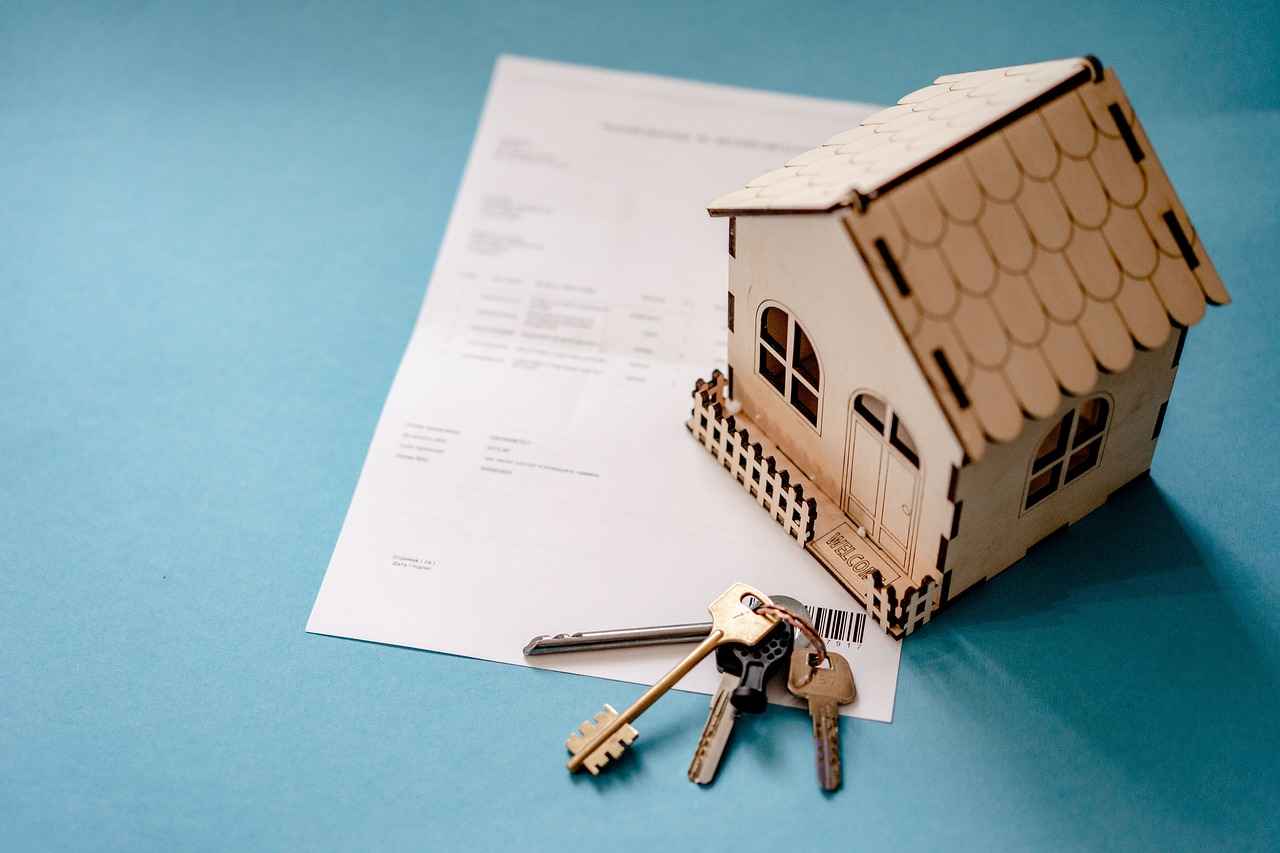
4. Smart Lighting Systems
Smart Lighting Systems have revolutionized the way we illuminate our homes, providing not just light but also an experience. These systems allow users to customize the ambiance of their living spaces, enhancing both comfort and aesthetics. With the integration of advanced technology, smart lighting systems offer a blend of energy efficiency and enhanced control through smartphone applications.
Smart lighting systems come with a myriad of benefits that extend beyond mere illumination:
- Customization: Users can easily adjust brightness and color to suit their mood or occasion.
- Energy Efficiency: By utilizing LED technology and scheduling capabilities, these systems can significantly reduce energy consumption.
- Remote Access: Control your lights from anywhere using your smartphone, ensuring you never come home to a dark house.
- Enhanced Security: Set lights to simulate presence when you’re away, deterring potential intruders.
Several brands have emerged as leaders in the smart lighting market:
- Philips Hue: Known for its extensive range of smart bulbs and fixtures, Philips Hue offers customizable white and color ambiance options.
- LIFX: LIFX bulbs are Wi-Fi enabled and do not require a hub, making them easy to install and control.
- Wyze: Offering budget-friendly options, Wyze smart bulbs are a great choice for those new to smart lighting.
Setting up smart lighting is straightforward:
1. Choose your smart bulbs or fixtures.2. Install the bulbs in your existing light sockets.3. Download the corresponding smartphone app.4. Follow the in-app instructions to connect your bulbs to your Wi-Fi network.5. Customize settings and create schedules as desired.
In summary, smart lighting systems are a must-have for any modern home. They not only enhance the ambiance and security of your living space but also contribute to energy savings. With brands like Philips Hue and LIFX leading the charge, transforming your home into a smart haven has never been easier.
4.1 Benefits of Smart Lighting
Smart lighting systems have become an essential component of modern smart homes, offering a myriad of benefits that enhance both the atmosphere and functionality of living spaces. These systems not only provide convenience but also contribute to energy savings and improved security. Below, we delve into the various advantages of integrating smart lighting into your home.
- Improved Mood and Ambiance: Smart lighting allows users to customize the brightness and color of their lights, creating the perfect ambiance for any occasion. Whether it’s a cozy dinner or an energetic gathering, the ability to adjust lighting settings can significantly influence the mood of a space.
- Enhanced Security: Smart lighting can improve home security by simulating occupancy when you’re away. By scheduling lights to turn on and off at specific times or using motion sensors, potential intruders may be deterred, making your home less appealing to burglars.
- Energy Efficiency: One of the standout features of smart lighting is its ability to save energy. Smart bulbs use LED technology, which consumes less power than traditional incandescent bulbs. Additionally, users can control their lights remotely, ensuring that they are turned off when not needed, further reducing energy waste.
- Convenience and Control: With smart lighting, you can control your lights from your smartphone or through voice commands. This level of control is especially beneficial for those with mobility issues or for adjusting lights without having to physically get up.
- Integration with Other Smart Devices: Smart lighting systems can seamlessly integrate with other smart home devices, such as smart speakers and security systems. This interconnectedness allows for automation, such as turning on lights when a security camera detects motion or when you arrive home.
In conclusion, smart lighting is a versatile addition to any smart home, offering benefits that go beyond mere illumination. From enhancing your mood to improving security and conserving energy, these systems are a smart investment for modern living.
4.2 Top Smart Lighting Brands
When it comes to enhancing your home with smart lighting, two brands stand out as industry leaders: Philips Hue and LIFX. Both of these brands offer a diverse range of products that cater to different lighting needs and preferences.
Philips Hue is renowned for its extensive ecosystem of smart bulbs, fixtures, and accessories. With a wide variety of options, including color-changing bulbs, white ambiance lights, and outdoor fixtures, Philips Hue allows users to create the perfect atmosphere in any room. The integration with major smart home platforms, such as Amazon Alexa, Google Assistant, and Apple HomeKit, makes it easy to control your lighting through voice commands or mobile applications. Additionally, Philips Hue offers features like geofencing, which automatically adjusts your lights based on your location, enhancing convenience.
On the other hand, LIFX is known for its vibrant color options and high-quality LED technology. Unlike Philips Hue, LIFX bulbs connect directly to Wi-Fi, eliminating the need for a hub. This feature simplifies setup and allows for easy control through the LIFX app. LIFX bulbs are also compatible with various smart home systems, making them a versatile choice for users looking to enhance their smart home experience. With features like customizable schedules, color effects, and integration with IFTTT (If This Then That), LIFX provides a unique approach to smart lighting.
In summary, both Philips Hue and LIFX offer exceptional smart lighting solutions, each with its own unique features and benefits. Whether you prefer the extensive ecosystem of Philips Hue or the hub-free convenience of LIFX, both brands can significantly enhance your home’s ambiance and energy efficiency.
| Brand | Key Features | Best For |
|---|---|---|
| Philips Hue | Wide range of products, hub-required, voice control | Comprehensive smart home integration |
| LIFX | Wi-Fi enabled, no hub needed, vibrant colors | Easy setup and customization |
Choosing between Philips Hue and LIFX ultimately depends on your specific needs and preferences. Both brands offer innovative solutions that can transform your living space into a smart, energy-efficient environment.
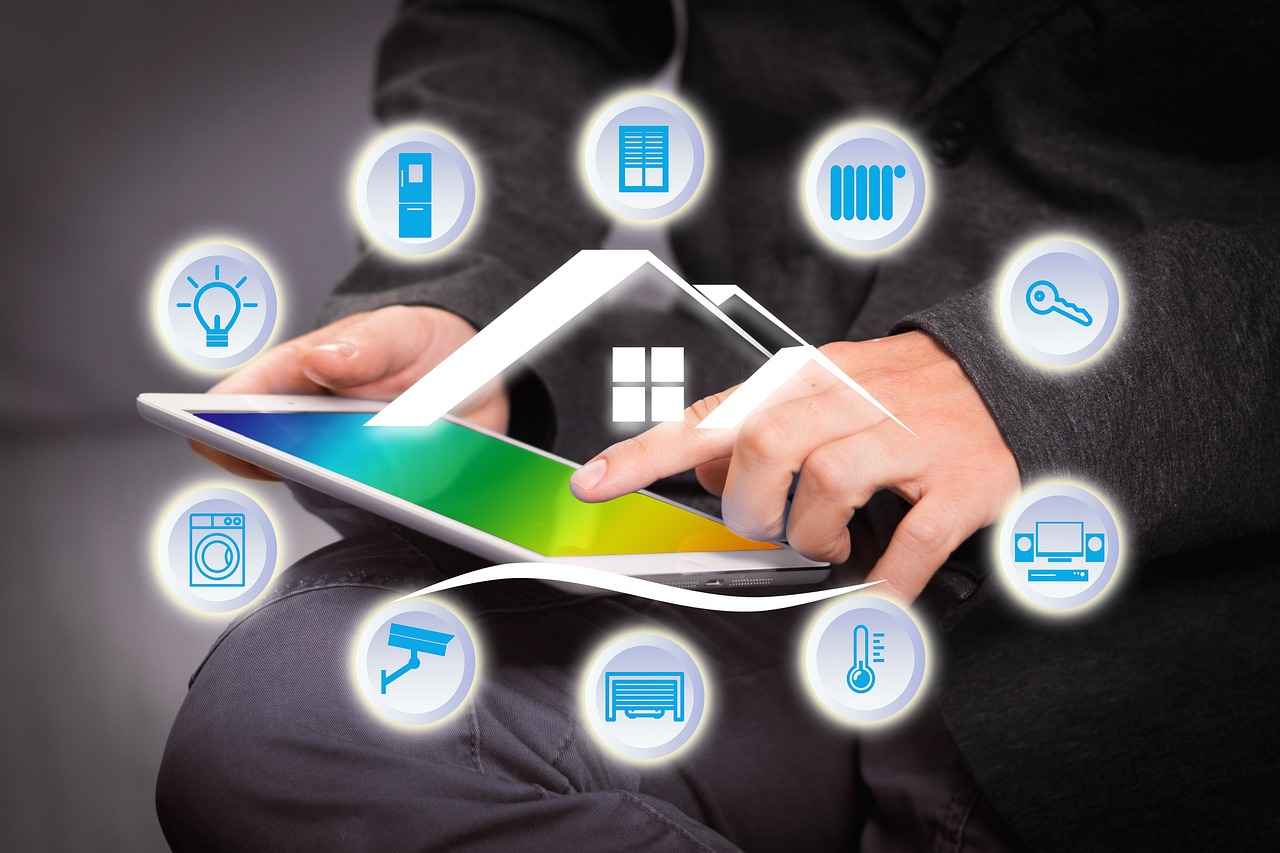
5. Smart Door Locks
Smart Door Locks are revolutionizing the way homeowners secure their properties. With the rise of technology, traditional locks are being replaced by innovative solutions that provide a myriad of benefits, including keyless entry and enhanced security features. This article delves into the advantages of smart door locks, popular brands, and how they can transform your home security.
- Keyless Entry: Say goodbye to fumbling for keys! Smart door locks allow you to unlock your door using a smartphone app, a keypad, or even biometric recognition.
- Enhanced Security: Many smart locks come with advanced security features such as encryption, tamper alerts, and automatic locking mechanisms, providing peace of mind.
- Remote Access: Homeowners can monitor and control access to their property from anywhere in the world, making it easier to manage guests or service providers.
- Temporary Access Codes: You can create temporary access codes for visitors, ensuring that they can enter your home without needing a physical key.
| Brand | Features | Price Range |
|---|---|---|
| August | Smartphone control, auto-lock, guest access | $150 – $250 |
| Schlage | Keypad entry, built-in alarm, compatibility with smart home systems | $100 – $200 |
| Yale | Keyless entry, voice control, customizable settings | $120 – $220 |
Installing a smart door lock is typically straightforward and can often be done without professional help. Most models come with detailed instructions, and many brands offer customer support to assist with the setup process. Additionally, ensure that your home Wi-Fi is stable, as most smart locks rely on a reliable internet connection.
Incorporating a smart door lock into your home security system is a proactive step towards enhancing safety and convenience. With features that cater to modern lifestyles, these locks not only offer peace of mind but also integrate seamlessly with other smart home devices. As technology continues to evolve, smart door locks will undoubtedly become a staple in homes worldwide.
5.1 Advantages of Smart Door Locks
Smart Door Locks: A Revolution in Home Security
As technology continues to advance, smart door locks have emerged as a vital component of modern home security systems. These innovative devices not only enhance security but also offer unparalleled convenience for homeowners. Below, we delve into the advantages of smart door locks and how they can transform your living experience.
| Advantage | Description |
|---|---|
| Keyless Entry | Enjoy the freedom of entering your home without the need for traditional keys. Use codes, fingerprints, or smartphone apps for access. |
| Remote Access | Monitor and control your door lock from anywhere using your smartphone. Lock or unlock your door remotely, providing peace of mind. |
| Temporary Access | Easily grant temporary access to guests or service providers without needing to provide a physical key. This is ideal for visitors or maintenance personnel. |
| Activity Monitoring | Receive notifications and keep track of who enters and exits your home. This feature enhances security by allowing you to monitor access. |
| Enhanced Security Features | Many smart locks come equipped with advanced security features such as encryption, tamper alerts, and automatic locking. |
In conclusion, smart door locks provide a multitude of benefits that enhance both security and convenience. With features like keyless entry, remote access, and activity monitoring, these locks are a smart investment for any homeowner looking to upgrade their home security system. As technology continues to evolve, embracing smart locks can lead to a safer and more efficient living environment.
5.2 Recommended Smart Door Lock Brands
When it comes to enhancing the security of your home, smart door locks have become a popular choice for many homeowners. These devices not only provide keyless entry but also come equipped with a range of innovative features that make them stand out in the market. Among the various brands available, two names consistently rise to the top: August and Schlage.
August Smart Locks are renowned for their user-friendly design and advanced technology. One of their most notable features is the ability to retrofit existing deadbolts, allowing homeowners to keep their original hardware while adding smart functionality. This means you don’t have to replace your entire lock system. Additionally, August locks offer features such as:
- Remote Access: Control your lock from anywhere using the August app.
- Auto-Lock: The lock automatically secures itself when you leave.
- Guest Access: Grant temporary access to friends or service providers without needing to create physical keys.
Schlage Smart Locks, on the other hand, are known for their durability and security features. With robust construction and a variety of styles, Schlage locks not only provide peace of mind but also enhance the aesthetic of your entrance. Key features include:
- Built-In Alarm: Alerts you to potential security breaches.
- Fingerprint Resistance: Keeps your keypad clean and functional.
- Compatibility: Works seamlessly with major smart home systems like Amazon Alexa and Google Assistant.
Both brands have established a reputation for reliability and innovation, making them ideal choices for anyone looking to upgrade their home security. Whether you prefer the retrofitting capability of August or the robust security features of Schlage, investing in a smart door lock is a step towards a more secure and convenient home.

6. Smart Plugs
Smart plugs are revolutionary devices that transform ordinary appliances into smart devices, enabling users to control them remotely and optimize energy usage. These compact gadgets plug into standard outlets and allow for a range of functionalities that enhance both convenience and efficiency in daily life.
Smart plugs connect to your home Wi-Fi network, allowing you to manage any device plugged into them via a smartphone app. This means that you can turn appliances on or off from anywhere, set schedules, and even monitor energy consumption. For instance, you can program your coffee maker to start brewing before you wake up, or turn off the lights remotely if you forget to do so before leaving home.
- Remote Control: Control your devices from anywhere using your smartphone.
- Energy Efficiency: Schedule appliances to turn off when not in use, reducing energy waste.
- Automation: Create routines that automate your daily tasks, enhancing convenience.
- Compatibility: Most smart plugs work with popular smart home ecosystems like Amazon Alexa and Google Assistant.
There are several reliable brands in the market offering smart plugs with various features:
- TP-Link Kasa Smart Plug: Known for its user-friendly app and energy monitoring capabilities.
- Wemo Mini Smart Plug: Compact design that fits into tight spaces, compatible with voice assistants.
- Amazon Smart Plug: Seamless integration with Alexa, providing an easy setup for Amazon users.
Incorporating smart plugs into your home not only enhances the convenience of managing your appliances but also contributes to energy savings and efficiency. As technology advances, these devices are becoming essential for anyone looking to create a smart home ecosystem.
6.1 How Smart Plugs Work
Smart plugs are innovative devices that revolutionize the way we interact with our home appliances. By connecting to your home Wi-Fi network, these plugs transform ordinary devices into smart devices, enabling users to control them remotely through their smartphones or tablets. This functionality not only enhances convenience but also promotes energy efficiency.
Remote Control and Automation
Once a smart plug is installed, users can easily manage any device plugged into it from anywhere, at any time. For example, you can turn on your coffee maker before you get out of bed or switch off your lamp after leaving home, all through a simple tap on an app. This capability is especially beneficial for those who often forget to turn off appliances, helping to reduce energy waste.
Scheduling and Timers
Many smart plugs come with scheduling features, allowing you to set specific times for devices to turn on or off automatically. This means you can program your lights to turn on at dusk or your heater to start warming up your space before you arrive home. Such automation not only adds convenience but also enhances security by giving the appearance that someone is home.
Voice Control Integration
Most smart plugs are compatible with popular voice assistants like Amazon Alexa, Google Assistant, and Apple HomeKit. This integration allows users to control their devices using voice commands, adding another layer of convenience. For instance, you can simply say, “Turn off the living room lamp,” and the smart plug will comply.
Energy Monitoring
Some advanced models of smart plugs even offer energy monitoring features, providing insights into the energy consumption of connected devices. This information can help users make informed decisions about their energy use, ultimately leading to cost savings on utility bills.
Conclusion
In summary, smart plugs are a versatile addition to any smart home setup. They offer remote control, automation, scheduling, voice integration, and energy monitoring, making them essential tools for enhancing convenience and efficiency in everyday life.
6.2 Best Smart Plug Options
Smart plugs are an essential component of any smart home setup, as they allow you to transform ordinary devices into smart devices with just a few simple steps. These plugs enable remote control, scheduling, and automation of various appliances, enhancing convenience and energy efficiency in your home.
Among the myriad of options available in the market, two brands stand out for their reliability and innovative features: TP-Link and Wemo.
| Brand | Key Features | Price Range |
|---|---|---|
| TP-Link |
|
$15 – $30 |
| Wemo |
|
$20 – $35 |
Both brands offer smart plugs that cater to different needs. For instance, TP-Link’s Kasa Smart Plug is particularly well-regarded for its energy monitoring feature, which allows users to track their energy consumption and make informed decisions about usage. In contrast, Wemo’s Smart Plug is favored for its seamless integration with Apple’s ecosystem, making it an excellent choice for Apple device users.
When choosing a smart plug, consider factors such as compatibility with your existing smart home devices, ease of use, and specific features that meet your lifestyle needs. Overall, investing in a quality smart plug can significantly enhance your home automation experience.

7. Smart Home Hubs
Smart Home Hubs are essential components of modern smart living, acting as the central control point for all your connected devices. These hubs facilitate seamless communication and integration across various platforms, enhancing your home’s intelligence and functionality.
By consolidating control of multiple devices, smart home hubs simplify the user experience, allowing homeowners to manage everything from lighting to security systems through a single interface. This capability not only saves time but also enhances convenience, as users can issue voice commands or utilize mobile apps to control their entire smart home ecosystem.
The significance of a smart hub cannot be overstated. It acts as a bridge between different devices, ensuring they can communicate effectively regardless of the manufacturer. This interoperability is crucial in a world where smart devices come from various brands with different technologies. A smart hub allows for automation and coordination, enabling users to set routines and schedules that enhance their living experience.
- Samsung SmartThings: Known for its versatility, SmartThings supports a wide range of devices, making it a popular choice for many homeowners.
- Amazon Echo: With built-in Alexa, the Echo not only serves as a hub but also provides voice-activated control for various smart devices.
- Google Nest Hub: This hub integrates seamlessly with Google services, offering a user-friendly interface and smart display features.
When selecting a smart home hub, consider factors such as:
- Compatibility: Ensure the hub can connect with your existing devices.
- Ease of Use: Look for intuitive interfaces and user-friendly apps.
- Automation Capabilities: Check if the hub supports routines and automation features.
In conclusion, investing in a smart home hub is a vital step toward creating a fully integrated smart home. By enhancing device communication and providing centralized control, these hubs not only improve convenience but also elevate the overall smart living experience.
7.1 Importance of a Smart Hub
A smart home hub is an essential component of a modern smart home, acting as the central command center for all your connected devices. It streamlines the management of various smart gadgets, allowing homeowners to control everything from lighting to security systems from a single interface. This integration not only enhances convenience but also boosts the overall efficiency of your smart home setup.
One of the primary benefits of a smart hub is its ability to facilitate automation. Users can create customized routines that automate daily tasks. For example, you can program your devices to turn off when you leave home or adjust your thermostat based on your daily schedule. This level of automation not only saves time but also contributes to energy efficiency, reducing your utility bills.
Moreover, a smart hub ensures inter-device communication. Many smart devices operate on different platforms, which can lead to compatibility issues. A good smart hub bridges these gaps, allowing devices from various manufacturers to work together seamlessly. This means that you can synchronize your smart lights with your security cameras or set your speakers to play music when your door unlocks.
Additionally, smart hubs often come with mobile apps that provide remote access to your smart home. This feature allows you to monitor and control your devices from anywhere, giving you peace of mind and greater control over your home environment.
In conclusion, investing in a smart home hub is a wise decision for anyone looking to enhance their smart living experience. By simplifying device management and enabling automation, a smart hub not only makes your life easier but also creates a more integrated and efficient home.
7.2 Leading Smart Home Hubs
In today’s interconnected world, smart home hubs play a crucial role in creating a seamless living environment. They serve as the command center for all your smart devices, facilitating communication and automation across various platforms. When considering a smart home hub, two standout options are Samsung SmartThings and Amazon Echo. Each offers unique features that cater to different user preferences and needs.
- Samsung SmartThings: This hub is renowned for its versatility and compatibility with a wide range of smart devices. It supports Zigbee, Z-Wave, and Wi-Fi protocols, allowing users to connect and control devices from different manufacturers. The SmartThings app provides an intuitive interface for managing devices, setting up automation routines, and monitoring home security.
- Amazon Echo: Beyond being a smart speaker, the Amazon Echo doubles as a powerful smart home hub. With Alexa at its core, it enables voice control over compatible devices, making it easy to adjust settings hands-free. The Echo also integrates with numerous third-party services, enhancing its functionality as a central control point for your smart home.
Both Samsung SmartThings and Amazon Echo provide excellent features, but the choice ultimately depends on your specific needs:
| Feature | Samsung SmartThings | Amazon Echo |
|---|---|---|
| Compatibility | Zigbee, Z-Wave, Wi-Fi | Primarily Wi-Fi, Alexa compatible |
| Voice Control | No native voice assistant | Yes, Alexa |
| Mobile App | SmartThings App | Alexa App |
| Automation Options | Extensive | Moderate |
In conclusion, when selecting a smart home hub, consider your existing devices, desired functionalities, and whether you prefer voice control or a more versatile automation system. Both Samsung SmartThings and Amazon Echo are excellent choices that can significantly enhance your smart living experience.

8. Smart Home Security Systems
Smart Home Security Systems are essential for ensuring the safety and protection of your home. With the rise of smart technology, these systems have evolved to provide comprehensive security solutions that integrate various components such as cameras, alarms, and monitoring services. This article delves into the features, benefits, and leading brands of smart home security systems, helping you make an informed decision for your home security needs.
A smart home security system is designed to protect your property by utilizing advanced technology to monitor and respond to potential threats. These systems can include:
- Security Cameras: Provide real-time video surveillance and recording.
- Intrusion Alarms: Trigger alerts when unauthorized access is detected.
- Monitoring Services: Offer 24/7 professional monitoring for immediate response to incidents.
When selecting a smart home security system, consider the following key features:
- 24/7 Monitoring: Continuous surveillance ensures prompt action in emergencies.
- Mobile Alerts: Receive notifications on your smartphone for any unusual activity.
- Easy Installation: Many systems offer DIY installation options for quick setup.
Several brands are recognized for their reliable and effective smart security systems:
- ADT: Known for comprehensive security solutions and professional monitoring.
- SimpliSafe: Offers customizable packages and easy-to-install systems.
- Ring: Famous for its video doorbells and integrated security cameras.
Investing in a smart home security system provides numerous advantages:
- Peace of Mind: Knowing your home is monitored around the clock enhances your sense of security.
- Remote Access: Control and monitor your security system from anywhere using a smartphone app.
- Insurance Discounts: Many insurance companies offer discounts for homes equipped with security systems.
In today’s world, a comprehensive smart home security system is not just an option; it is a necessity for protecting your home and loved ones. By integrating cameras, alarms, and monitoring services, you can achieve a higher level of security that adapts to your lifestyle. Explore the various options available and choose a system that meets your specific needs for ultimate peace of mind.
8.1 Key Features of Smart Security Systems
In today’s fast-paced world, ensuring the safety of your home is more crucial than ever. Smart security systems have revolutionized home protection by integrating advanced technology that offers peace of mind. When selecting a security system, it is essential to look for several key features that enhance safety and convenience.
- 24/7 Monitoring: A reliable smart security system should provide round-the-clock monitoring. This ensures that your home is under constant surveillance, allowing for immediate response to any suspicious activity.
- Mobile Alerts: Real-time notifications sent directly to your smartphone keep you informed of any security breaches or unusual activity, no matter where you are. This feature allows for quick action if needed.
- Easy Installation: Look for systems that offer hassle-free installation. Many modern security systems can be set up without professional help, making it easier for homeowners to secure their properties quickly.
- High-Definition Video: Quality matters when it comes to surveillance. Opt for systems that provide high-definition video recording to capture clear images of any incidents.
- Smart Home Integration: The ability to integrate with other smart home devices, such as smart locks and lighting, enhances overall security and convenience. This allows for coordinated responses to alerts, such as turning on lights when motion is detected.
- Two-Way Audio: This feature enables homeowners to communicate through the security camera, providing an additional layer of interaction and deterrence for potential intruders.
- Customizable Security Settings: Tailoring your security system to meet your specific needs is vital. Look for options that allow you to customize alerts, camera angles, and monitoring schedules.
In conclusion, investing in a smart security system with these key features will significantly enhance your home’s safety. With continuous advancements in technology, these systems are becoming more accessible and user-friendly, making them an essential component of modern home security solutions.
8.2 Top Smart Security System Brands
When it comes to safeguarding your home, choosing the right smart security system is crucial. Two of the most renowned brands in this domain are ADT and SimpliSafe. Both companies offer a variety of customizable security solutions designed to meet the unique needs of homeowners.
| Feature | ADT | SimpliSafe |
|---|---|---|
| Monitoring Type | 24/7 Professional Monitoring | Self-Monitoring or Professional Monitoring |
| Installation | Professional Installation | DIY Installation |
| Contracts | Long-Term Contracts Required | No Contracts Required |
| Equipment | Comprehensive Equipment Options | Flexible Equipment Packages |
| Mobile App | Advanced Features | User-Friendly Interface |
ADT is a traditional security provider with a long-standing reputation in the industry. They offer a comprehensive range of equipment and services, including smart cameras, motion detectors, and alarms. Their systems are often professionally installed, ensuring optimal placement and functionality. However, ADT typically requires long-term contracts, which may not suit everyone.
On the other hand, SimpliSafe is known for its flexibility and user-friendly approach. They provide DIY installation options, allowing homeowners to set up their systems without the need for professional assistance. SimpliSafe also offers a choice between self-monitoring and professional monitoring, making it a great option for those who prefer more control over their security. Additionally, there are no long-term contracts, which can be a significant advantage for many users.
Ultimately, both ADT and SimpliSafe offer robust security solutions, but the best choice depends on your individual needs and preferences. Whether you prioritize professional installation or flexible monitoring options, these brands have something to offer.

9. Smart Appliances
Smart Appliances are revolutionizing the way we manage our households, making everyday tasks more efficient and convenient. These innovative devices, ranging from smart refrigerators to smart washing machines, incorporate advanced technology to enhance connectivity and automation in our daily lives.
In today’s fast-paced world, smart appliances are designed to simplify home management. They allow users to control and monitor their devices remotely, providing a level of convenience that traditional appliances cannot match. For instance, a smart refrigerator can alert you when groceries are running low, while a smart washing machine can be programmed to run cycles during off-peak energy hours, saving you money on utility bills.
- Remote Monitoring: Many smart appliances come with mobile apps that allow you to check the status of your devices from anywhere. This means you can start your washing machine while at work or adjust your oven’s temperature while out shopping.
- Energy Efficiency: Smart appliances are designed to use energy more efficiently. For example, smart thermostats can learn your habits and adjust heating and cooling accordingly, leading to significant energy savings.
- Automated Features: With automation, tasks can be scheduled or triggered based on specific conditions. A smart coffee maker can brew your morning coffee at a set time, or a smart dishwasher can run when energy rates are lower.
When it comes to purchasing smart appliances, some brands lead the market with their innovative offerings:
- Samsung: Known for its cutting-edge technology, Samsung offers a range of smart refrigerators and washing machines that integrate seamlessly with other smart home devices.
- LG: LG’s smart appliances come equipped with features like ThinQ technology, allowing for voice control and remote management.
- Whirlpool: Whirlpool provides reliable smart ovens and dishwashers that help streamline your cooking and cleaning processes.
In conclusion, investing in smart appliances can significantly enhance your home management experience. With their ability to connect, automate, and optimize everyday tasks, these devices not only save time but also contribute to a more energy-efficient household.
9.1 Benefits of Smart Appliances
Smart appliances are revolutionizing the way we manage our homes, offering a multitude of advantages that cater to modern lifestyles. These innovative devices not only enhance convenience but also promote energy efficiency and streamline daily chores. Let’s explore the key benefits of incorporating smart appliances into your household.
- Remote Monitoring: One of the most significant benefits of smart appliances is the ability to monitor them remotely via smartphone apps. This feature allows users to check the status of their appliances, receive notifications, and manage settings even when they are away from home.
- Energy Efficiency: Smart appliances are designed to optimize energy consumption. For example, smart refrigerators can adjust their cooling settings based on usage patterns, while smart washing machines can schedule cycles during off-peak hours to save on electricity bills.
- Automation: Many smart appliances come with automation features that allow them to perform tasks without manual intervention. For instance, a smart oven can preheat at a designated time, ensuring meals are ready when you arrive home.
- Enhanced Control: With smart appliances, homeowners can control their devices through voice commands or mobile apps. This level of control adds an element of convenience, allowing users to multitask effectively.
- Improved Maintenance: Smart appliances often come with diagnostic features that alert users to potential issues before they become major problems. This proactive approach to maintenance can save time and money in the long run.
In conclusion, the integration of smart appliances into your home can significantly enhance your lifestyle by providing convenience, efficiency, and control. As technology continues to advance, these appliances will become even more integral to our daily routines, making home management simpler and more efficient.
9.2 Best Smart Appliance Brands
In today’s rapidly evolving technological landscape, smart appliances have become essential components of modern living. Leading brands like Samsung and LG are at the forefront of this innovation, offering a range of products that seamlessly integrate into your smart home ecosystem. These brands not only provide cutting-edge technology but also prioritize user experience and energy efficiency.
- Samsung: Renowned for its innovative approach, Samsung’s line of smart appliances includes refrigerators, washing machines, and ovens that can be controlled remotely via smartphone apps. Their SmartThings platform allows users to connect and manage multiple devices effortlessly.
- LG: LG smart appliances are designed with user convenience in mind. Their ThinQ technology enables users to monitor and control their appliances from anywhere, ensuring optimal performance and energy savings. From smart refrigerators that help manage grocery lists to washing machines that can be programmed remotely, LG offers a comprehensive smart home experience.
- Whirlpool: Known for reliability, Whirlpool has also embraced smart technology. Their smart appliances come equipped with features that allow for remote operation and monitoring, making household management easier than ever.
- GE Appliances: GE offers a range of smart kitchen and laundry appliances that integrate with home automation systems. Their products are designed to enhance functionality and convenience, ensuring that users can manage their home efficiently.
- Bosch: Bosch is recognized for its high-quality engineering and design. Their smart appliances not only provide advanced features but also focus on sustainability, making them a great choice for environmentally conscious consumers.
In conclusion, choosing the right brand is crucial for maximizing the benefits of smart appliances in your home. With innovation and user-friendly features, brands like Samsung and LG lead the market, providing solutions that enhance everyday life while promoting energy efficiency.
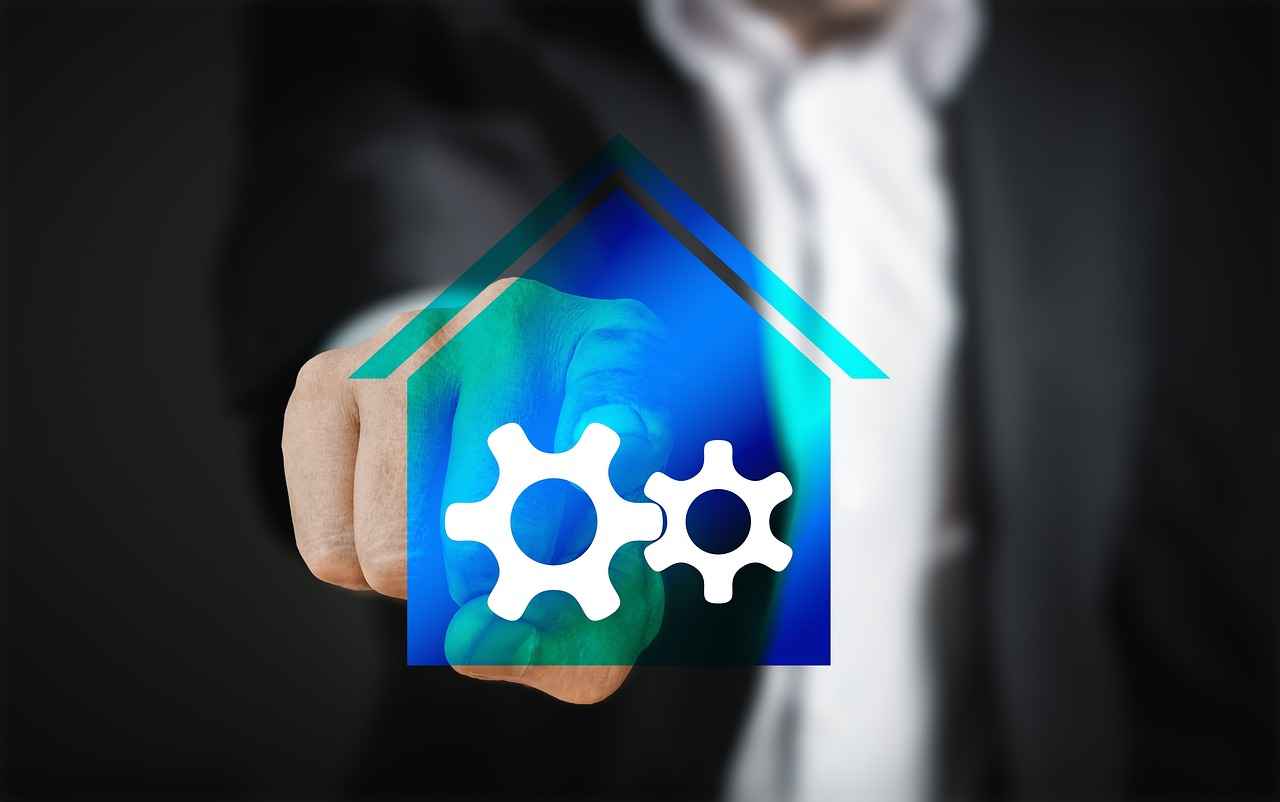
10. Smart TVs
Smart TVs have revolutionized the way we consume entertainment by providing seamless access to a variety of streaming services and apps. These devices not only enhance viewing experiences but also integrate advanced features that make entertainment more interactive and personalized.
With integrated voice control, users can easily search for content, change channels, and control playback without needing a remote. This hands-free functionality adds a layer of convenience, especially in a busy household.
Moreover, smart TVs often come equipped with features such as:
- High-Definition Displays: Offering stunning picture quality, many smart TVs support 4K and even 8K resolutions.
- App Compatibility: Access popular streaming platforms like Netflix, Hulu, and Amazon Prime Video directly from your TV.
- Screen Mirroring: Easily share content from your smartphone or tablet to the big screen.
- Smart Home Integration: Control other smart devices in your home through your TV, creating a centralized hub for your entertainment and smart home needs.
When considering the best smart TV brands, Sony and LG stand out for their innovative technology and superior picture quality. They offer a range of models to suit different budgets and preferences, ensuring that there is something for everyone.
In conclusion, smart TVs are not just a trend; they are a fundamental part of modern entertainment. By combining technology with user-friendly features, they have transformed how we interact with our favorite shows and movies, making every viewing experience more enjoyable.
10.1 Features of Smart TVs
Smart TVs have revolutionized the way we consume media, offering a plethora of features that enhance the viewing experience. When considering a smart TV, it’s essential to look for the following key features:
- Voice Activation: Many modern smart TVs come equipped with voice recognition technology, allowing users to control their TV with simple voice commands. This feature not only provides convenience but also enhances accessibility for users with mobility challenges.
- App Compatibility: A wide range of streaming applications is crucial for a smart TV. Look for models that support popular platforms such as Netflix, Hulu, Amazon Prime Video, and Disney+. The more apps available, the more entertainment options you have at your fingertips.
- High-Definition Displays: The quality of the display is paramount in a smart TV. Opt for models that offer at least 4K resolution for stunning picture clarity and vibrant colors. Additionally, features like HDR (High Dynamic Range) can significantly enhance the viewing experience by providing better contrast and color accuracy.
- Screen Mirroring: This feature allows users to mirror content from their smartphones or tablets directly onto the TV screen. It’s particularly useful for sharing photos, videos, or presentations during gatherings.
- Gaming Features: For gaming enthusiasts, look for smart TVs with low input lag, high refresh rates, and support for variable refresh rate technologies like NVIDIA G-Sync or AMD FreeSync. These features ensure a smoother and more responsive gaming experience.
In conclusion, when choosing a smart TV, consider these features to ensure you select a model that meets your entertainment needs and enhances your overall viewing experience. A well-equipped smart TV can transform your home entertainment setup, making it more interactive and enjoyable.
10.2 Best Smart TV Brands
When it comes to selecting a smart TV, the brand you choose can significantly impact your viewing experience. Two brands that consistently stand out in the market are Sony and LG. Both companies are renowned for their commitment to quality, innovative technology, and user-friendly features.
- Sony: Known for its exceptional picture quality, Sony smart TVs often feature OLED technology that delivers stunning contrast and vibrant colors. The brand’s Bravia engine enhances image processing, making every scene lifelike. Additionally, Sony TVs come equipped with Android TV, offering a vast array of apps and streaming services, along with voice control capabilities through Google Assistant.
- LG: LG is a leader in the smart TV market, particularly known for its OLED displays that provide deep blacks and wide viewing angles. The brand’s webOS platform is intuitive and user-friendly, allowing easy navigation through apps and settings. LG TVs also support voice commands with built-in Google Assistant and Amazon Alexa, making them a versatile choice for smart home integration.
Both brands offer a variety of models to suit different budgets and preferences, ensuring that you can find the perfect fit for your home entertainment needs. Whether you prioritize picture quality, smart features, or overall value, Sony and LG are excellent choices that promise to enhance your viewing experience.
In conclusion, investing in a smart TV from a reputable brand like Sony or LG not only guarantees high-quality technology but also ensures access to the latest features that can transform your home entertainment setup. With their cutting-edge advancements and user-friendly interfaces, these brands remain at the forefront of the smart TV industry.

11. Smart Irrigation Systems
In the era of technological advancement, smart irrigation systems have emerged as a revolutionary solution for managing water resources in gardens and lawns. These systems utilize advanced technology to optimize water usage, ensuring that plants receive the right amount of moisture based on current weather conditions and soil moisture levels.
By integrating weather forecasts and soil sensors, smart irrigation systems can automatically adjust watering schedules. This not only conserves water but also promotes healthier plant growth. Homeowners can significantly reduce their water bills while maintaining vibrant landscapes.
11.1 Advantages of Smart Irrigation
- Water Conservation: Smart systems reduce water waste by delivering precise amounts based on real-time data.
- Healthier Plants: By providing optimal moisture levels, these systems enhance plant health and growth.
- Convenience: Automated scheduling saves time and effort, allowing homeowners to focus on other tasks.
- Remote Management: Many smart irrigation systems can be controlled via smartphone apps, providing flexibility and ease of use.
11.2 Leading Smart Irrigation Brands
| Brand | Key Features |
|---|---|
| Rachio | Weather intelligence, customizable schedules, and app control. |
| RainMachine | Real-time weather data, web-based interface, and smart home integration. |
| Orbit B-hyve | Smart watering based on local weather, remote access, and easy installation. |
In conclusion, smart irrigation systems are a crucial investment for environmentally conscious homeowners looking to enhance their gardening experience. By leveraging technology to optimize water use, these systems not only contribute to sustainability but also ensure that your garden thrives.
11.1 Advantages of Smart Irrigation
Smart irrigation systems are revolutionizing the way we manage water resources in our gardens and landscapes. By utilizing advanced technology, these systems offer numerous benefits that not only promote water conservation but also contribute to the overall health of plants. Here are some of the key advantages:
- Efficient Water Usage: Smart irrigation systems adjust watering schedules based on real-time data such as weather forecasts and soil moisture levels. This ensures that plants receive the right amount of water, reducing waste and conserving precious resources.
- Healthier Plants: By providing tailored watering schedules, these systems help maintain optimal soil moisture, which is crucial for plant health. Overwatering or underwatering can lead to stress and disease, but smart irrigation mitigates these risks.
- Cost Savings: With reduced water consumption, homeowners can see a significant decrease in their water bills. This not only saves money but also contributes to environmental sustainability.
- Remote Management: Many smart irrigation systems come with mobile apps that allow users to monitor and control their watering schedules from anywhere. This flexibility ensures that your garden is well taken care of, even when you’re away.
- Automation: Smart irrigation systems automate the watering process, freeing up time for homeowners. This means less manual labor and more time to enjoy your outdoor space.
In summary, smart irrigation systems offer a range of benefits that enhance water efficiency and promote healthier plant growth. By investing in these technologies, homeowners can create a sustainable and thriving garden environment.
11.2 Leading Smart Irrigation Brands
When it comes to maintaining lush gardens and vibrant lawns, smart irrigation systems have become an essential tool for homeowners and landscapers alike. These innovative solutions not only conserve water but also promote healthier plant growth by tailoring irrigation schedules to specific environmental conditions. Among the leading brands in this sector, Rachio and RainMachine stand out for their effectiveness and user-friendly features.
Rachio is renowned for its advanced smart irrigation controllers that leverage weather data and soil moisture levels to optimize watering schedules. By connecting to Wi-Fi, Rachio devices allow users to manage their irrigation systems remotely through a smartphone app. This feature not only enhances convenience but also significantly reduces water waste. With customizable schedules and integration with various smart home platforms, Rachio has positioned itself as a leader in the smart irrigation market.
RainMachine offers a unique approach to smart irrigation with its focus on local weather forecasts and real-time data. Their systems utilize hyper-local weather data to adjust watering based on immediate conditions, ensuring that plants receive the right amount of water without over-watering. Additionally, RainMachine’s intuitive interface and compatibility with various smart home devices make it a popular choice among tech-savvy homeowners.
- Water Conservation: Smart irrigation systems can reduce water usage by up to 50% compared to traditional methods.
- Healthier Plants: By providing optimal watering schedules, these systems promote healthier plant growth and reduce the risk of disease.
- Remote Management: Users can control and monitor their irrigation systems from anywhere, ensuring convenience and peace of mind.
In summary, brands like Rachio and RainMachine exemplify the advancements in smart irrigation technology. Their innovative solutions not only enhance the efficiency of watering practices but also contribute to sustainable landscaping efforts. By investing in smart irrigation systems, homeowners can enjoy beautiful gardens while being environmentally responsible.

12. Conclusion: The Future of Smart Living
In today’s rapidly changing world, the integration of smart home technology is becoming increasingly essential. As we embrace these advancements, we find ourselves stepping into a realm of unparalleled comfort, enhanced security, and improved efficiency. The evolution of smart devices is not just about convenience; it is about creating a more interconnected living environment that adapts to our needs and preferences.
The future of smart living is characterized by a seamless integration of various smart home devices. From smart speakers that serve as control hubs to smart thermostats that learn our routines, each device plays a crucial role in enhancing our daily lives. For instance, smart lighting systems can adjust automatically based on the time of day or occupancy, providing both energy savings and personalized ambiance.
Moreover, the importance of smart security cameras cannot be overstated. These devices not only offer real-time surveillance but also allow homeowners to monitor their properties remotely, ensuring peace of mind. As technology advances, we can expect even more sophisticated features, such as AI-driven analytics that can differentiate between familiar faces and potential intruders.
As we look forward, the integration of smart appliances into our homes promises to revolutionize household management. Imagine a refrigerator that can track your groceries and suggest recipes based on what you have. This level of connectivity enhances our lives, making everyday tasks more manageable and efficient.
In conclusion, the future of smart living is bright. As technology continues to advance, integrating smart devices will not only enhance our comfort and security but also pave the way for a more sustainable and efficient lifestyle. Embracing these innovations will lead us to a smarter, more connected future in our homes.
Frequently Asked Questions
- What are the benefits of using smart home devices?
Smart home devices offer convenience, enhanced security, and energy efficiency. They allow you to control various aspects of your home remotely, making your life easier and more connected.
- How do smart thermostats help save energy?
Smart thermostats learn your heating and cooling preferences, adjusting temperatures automatically based on your habits. This not only keeps your home comfortable but also significantly reduces energy consumption and costs.
- Can I control smart devices when I’m not at home?
Absolutely! Most smart devices can be controlled remotely via smartphone apps, allowing you to manage your home’s settings from anywhere in the world.
- What features should I look for in smart security cameras?
Look for features like motion detection, night vision, and two-way audio. These capabilities ensure that you can monitor your home effectively and communicate with anyone on your property.
- Are smart door locks safe?
Yes, smart door locks are designed with advanced security features. They provide keyless entry and allow you to grant temporary access to guests, enhancing both convenience and security.
- Do I need a smart home hub for my devices?
A smart home hub is not mandatory, but it simplifies the management of multiple devices, enabling seamless communication and automation across different platforms.

